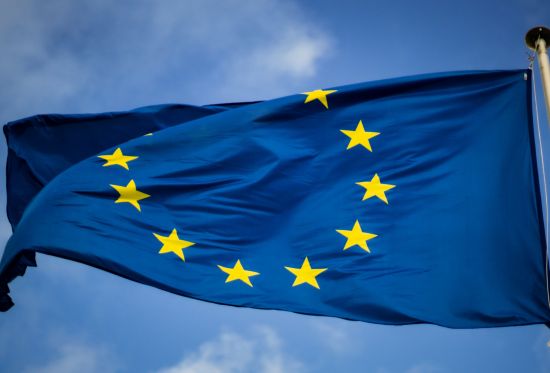What happened last week?
US
- The Federal Reserve (the Fed) kept interest rates steady.
Europe
- UK inflation cooled by even more than expected in February.
- The Bank of England (BoE) left borrowing costs unchanged.
Asia
- The Bank of Japan (BoJ) ended its long era of negative interest rates.
- Industrial production in China nudged encouragingly higher.
What does this mean?
What does this mean?
The Fed stunned no one this week, as it made its fifth consecutive decision to leave its benchmark interest rate unchanged in a range of 5.25% to 5.5%. Central bankers said they still expect to cut interest rates three times this year, but more of them now say there could be fewer trims, depending on how things unfold. The Fed also raised its forecasts for core inflation slightly this year, but in a more encouraging sign, it also raised its forecast for economic growth. As for next year, Fed members estimate that the central bank will lower interest rates three times – down from the four cuts they predicted just three months ago.
Consumer prices in the UK jumped by a surprisingly small 3.4% in February – the slimmest yearly lurch since 2021 and a lot kinder than January’s 4%. This was partly thanks to easing food prices, but even core inflation (the measure that excludes food and energy) climbed by less than expected. The upbeat news prompted traders to increase their bets that the BoE will start cutting its key interest rate this summer.
In the meantime, the BoE announced – unsurprisingly – that it held that rate steady for a fifth straight time last week, at a 16-year high of 5.25%. It was a near-unanimous decision, with the two central bankers who’d been calling for even higher rates coming around and voting with the majority.
The Bank struck an optimistic tone, saying that inflation appears to be falling toward its 2% target, prompting traders to further increase their bets for summer rate cuts. That sent the pound and UK bond yields lower.
The BoJ, on the other hand, continued to dance to its own beat last week, announcing its first rate hike since 2007. With that, the central bank said sayonara to the world’s last-remaining negative interest rate and a whole bunch of other unconventional tools designed to encourage spending over saving. The BoJ’s been locked in a decades-long tussle with economy-defeating deflation, but it’s got new confidence that its 2% inflation target is finally within sight. That’s because of a recent run of consumer price rises and a strong new wage deal agreed to by Japan’s biggest companies, which the Bank believes could keep inflation going.
Growth in Chinese factory output and fixed-asset investment both took off at the start of the year, new data found, a reassuring sign for the world’s second-biggest economy. Investors have been closely watching China’s economic reports for signs of improvement after a period of falling prices, fading consumer confidence, and slumping property values. The data provided little cause for optimism on that last point, however: it showed that the real estate sector remains a major drag on the economy.
This week’s focus: Economic Sentiment In The Eurozone
The European Commission’s economic sentiment index (ESI) provides a broad measure of both business and consumer sentiment in the eurozone – and that’s normally a good predictor of quarterly economic growth in the bloc. The figure, which is tweaked to remove seasonal factors, shows the gap between the number of positive and negative responses and expresses it so that 100 equals the long-term average. Needless to say, the higher the number, the more positive the economic outlook is (and vice versa).
The ESI plunged to an all-time low of 58.7 during the Covid-19 crisis, but it has steadily recovered, with February’s figure reaching 95.4.

Traders will get a March reading on Wednesday, and most expect it to improve a bit more, helped by some palpable relief that the European Central Bank has successfully tamed inflation without steering the eurozone economy into a recession. Further boosting consumer sentiment are rising discretionary incomes due to easing energy prices, which have fallen to levels last seen before Russia started to curtail natural gas supplies to Europe in 2021.
With the outlook – and the mood generally – looking brighter, investors have started to buy up European travel, retail, and luxury goods shares, betting that a rebound in the region’s economy will tempt consumers to spend more on vacations and expensive things. That’s helped propel European consumer discretionary shares by 9% this year, leading them to outperform consumer staples stocks – the ones that usually do well when folk are worried about the economy – by a hefty 12 percentage point margin. It’s also helped broaden the recent rally in the benchmark Stoxx Europe 600 index, which had mainly been driven by an elite band of mega-cap stocks – the so-called GRANOLAS.
The "GRANOLAS" are the European equivalent to the US market's 'Magnificent Seven' – the tech behemoths leading Wall Street. It refers to a select group of European heavyweights, including GSK, Roche, ASML, Nestlé, Novartis, Novo Nordisk, L'Oréal, LVMH, AstraZeneca, SAP, and Sanofi.
The Swiss National Bank surprised markets with the first rate cut by a G10 Central Bank. The FED stuck to its announced path and kept rates on hold. The SNB lowered its benchmark rate to 1.5% while revising down its inflation forecast. Its widely expected the ECB, FED and BoE will follow with rate cuts in June.
-

The Week Ahead
- Monday: US new home sales (February).
- Tuesday: US consumer confidence (March), US durable goods orders (February)
- Wednesday: Eurozone economic sentiment (March).
- Thursday: Eurozone M3 money supply (February), US pending home sales (February). Earnings: Walgreens Boots Alliance.
- Friday: Japan unemployment rate (February), US personal income and outlays (February), Japan industrial production and retail sales (February).
This document is provided to you for your information and discussion purposes only. It is not a solicitation for business or an offer to buy or sell any security or other financial instrument. Any information including facts, opinions, or quotations, may be condensed or summarised and are expressed as of the date of writing. The information may change without notice and Trusted Novus Bank (“TNB”) is under no obligation to ensure that such updates are brought to your attention. Past performance is not a guide to future performance.
This document has been prepared by TNB from sources TNB believes to be reliable but TNB does not guarantee its accuracy or completeness and does not accept liability for any loss arising from its use. TNB reserves the right to remedy any errors that may be present in this document.
Trusted Novus is registered in Gibraltar under number 3207. Its registered address and principal place of business is: Trusted Novus Bank Limited, 76 Main Street, Gibraltar GX11 1AA. It is regulated by the Gibraltar Financial Services Commission (Permission Number 3207) to provide Banking and Investment Services. TNB is a member of the Gibraltar Deposit Guarantee Board (www.gdgb.gi) and the Gibraltar Investor Compensation Scheme (www.gics.gi).
